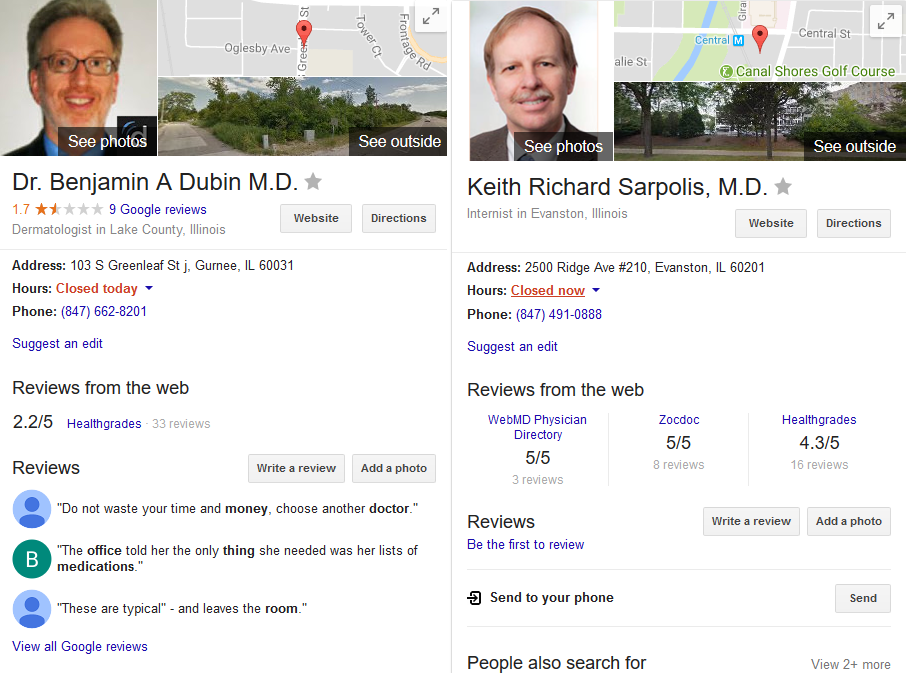Physicians should be aware of what patients are saying about them online. Choosing a physician is a commitment for a patient, and today most will do a search online prior to making an appointment. Ratings and reviews create your online reputation, and will determine whether or not potential new patients call you. So, online reputation management for doctors is crucial. If you’ve searched for yourself online, you’ve either found a lack of reviews, or reviews you are either happy or frustrated with.
Diagnosing your Online Reputation
Monitor your ratings and reviews by typing your name and a qualifier into Google. E.g., “Dr. Joe Smith”, or “Joe Smith doctor”. Every entry that shows on this page, especially the top half, will be read by potential new patients. Star ratings will matter. I recommend you click through to actually read what people wrote. Not only is this important for online reputation management for doctors, but it can be very helpful feedback to creating a better patient experience. It’s best to assign these simple search evaluations to a staff member quarterly.
Gaining Reviews
If you find that you don’t have many ratings and reviews, you can do something about it. No matter how you feel about Yelp, patients do look to Yelp for doctor reviews. You can ask your patients to give you feedback on Google or Yelp. With a simple request, most people will happily take five minutes of their day to comply.
Improving Reviews
If you find that you have some ratings, reviews, or comments you are not happy with, there are a couple things you can do:
- Some review/rating platforms have a means for you to comment to that person either publicly or privately. It is best here to use kindness only, and common sense. For any and every dissatisfied review (or at least the most prominent ones), it is best to respond. Your response should include gratitude for the feedback, empathy for their experience, and offer some form of recourse. Not all situations can be treated with recourse, and you may be tempted to tell the patient how they are wrong. Avoid that. Do your best, and seek expert brand reputation help if you are unsure.
- An additional tactic is to work to move down/drown out the bad review(s). Do this by asking satisfied patients to go to that website (the one with the bad review/rating you want to drown out) and make a review. Again, ask with sincerity, and you’ll get some results.
Treating More Complex Review Issues
If you find a false review, you may be able to submit a request to the website and get it removed, or you may need expert help with this.
If you come across bad press or other more challenging content that really makes you look bad, the above tactics may not solve the issue. You may need web reputation services. There are professionals who understand internet algorithms, how to change search results, and how to make appeals to sites that make it seem like you have no influence. You can read more about reputation management here.


